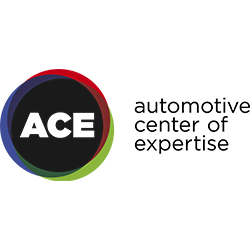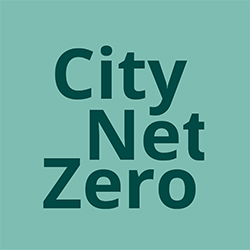Positive health (PH) has been described as a promising transformative innovation to address the challenges of promoting well-being and reducing the burden of disease. For this study, we conducted a scientific literature review of the current state of knowledge about PH as introduced by Huber and colleagues, following the Cochrane Rapid Review recommendations. Three databases were searched (PubMed, Google Scholar, and CINAHL). Data were extracted and synthesised using a narrative approach. A total of 55 articles were included. The initial evaluation revealed promising results at both the individual and collective levels. However, several articles gave reason for further refinement of the conceptualisation of PH and of ways to measure the effects of PH interventions in greater detail. Professionals also expressed a desire for a more informed application and elaboration of the PH method, in various settings and populations, to increase its effectiveness in practice. The results from the rapid review highlight the transformative potential of PH in shifting from a disease-oriented to a health-oriented paradigm of healthcare. This underlines the need for continued research regarding further development of the concept and its practical method, along with the necessity for methodological innovation.
MULTIFILE

This study evaluated the effect of single session email consultation (SSEC) on empowerment of parents. Practitioners in a control group (n = 19) received no training and practitioners in an experimental group (n = 21) were trained to use empowermentoriented techniques in online consultation. Parental empowerment was measured (n = 96) through a questionnaire based on the Family Empowerment Scale before and after receiving advice from a trained or a non-trained practitioner. Parents showed a significant increase in the subscale of self-confidence (Cohen’s d = 0.33). Study findings lend support to the feasibility of SSEC as a brief intervention to improve selfconfidence of parents. A training for practitioners did not influence the outcomes.
DOCUMENT
As the Dutch population is aging, the field of music-in-healthcare keeps expanding. Healthcare, institutionally and at home, is multiprofessional and demands interprofessional collaboration. Musicians are sought-after collaborators in social and healthcare fields, yet lesser-known agents of this multiprofessional group. Although live music supports social-emotional wellbeing and vitality, and nurtures compassionate care delivery, interprofessional collaboration between musicians, social work, and healthcare professionals remains marginal. This limits optimising and integrating music-making in the care. A significant part of this problem is a lack of collaborative transdisciplinary education for music, social, and healthcare students that deep-dives into the development of interprofessional skills. To meet the growing demand for musical collaborations by particularly elderly care organisations, and to innovate musical contributions to the quality of social and healthcare in Northern Netherlands, a transdisciplinary education for music, physiotherapy, and social work studies is needed. This project aims to equip multiprofessional student groups of Hanze with interprofessional skills through co-creative transdisciplinary learning aimed at innovating and improving musical collaborative approaches for working with vulnerable, often older people. The education builds upon experiential learning in Learning LABs, and collaborative project work in real-life care settings, supported by transdisciplinary community forming.The expected outcomes include a new concept of a transdisciplinary education for HBO-curricula, concrete building blocks for a transdisciplinary arts-in-health minor study, innovative student-led approaches for supporting the care and wellbeing of (older) vulnerable people, enhanced integration of musicians in interprofessional care teams, and new interprofessional structures for educational collaboration between music, social work and healthcare faculties.
MUSE supports the CIVITAS Community to increase its impact on urban mobility policy making and advance it to a higher level of knowledge, exchange, and sustainability.As the current Coordination and Support Action for the CIVITAS Initiative, MUSE primarily engages in support activities to boost the impact of CIVITAS Community activities on sustainable urban mobility policy. Its main objectives are to:- Act as a destination for knowledge developed by the CIVITAS Community over the past twenty years.- Expand and strengthen relationships between cities and stakeholders at all levels.- Support the enrichment of the wider urban mobility community by providing learning opportunities.Through these goals, the CIVITAS Initiative strives to support the mobility and transport goals of the European Commission, and in turn those in the European Green Deal.Breda University of Applied Sciences is the task leader of Task 7.3: Exploitation of the Mobility Educational Network and Task 7.4: Mobility Powered by Youth Facilitation.
In tijden van toenemende culturele diversiteit en arbeidsonzekerheid hebben jongeren in Nederlandse en Duitse stadswijken grote behoefte aan richting met betrekking tot hun toekomstige leven. Ouders en leraren lijken zelf vaak te worden overweldigd door de snel veranderende wereld waarin ze leven. Naast deze veranderingen neemt het gebruik van sociale media sterk toe, waardoor de al bestaande generatiekloof nog groter wordt. Deze ontwikkelingen hebben grote gevolgen voor de levensloopperspectieven van jongeren en leiden er vaak toe dat ze meer dan ooit richting zoeken bij hun leeftijdgenoten. In plaats van dit te zien als een problematische situatie, is dit project erop gericht de netwerken van jongeren te gebruiken als bron voor verbetering van de stadswijken. Het basisidee is jonge adolescenten (in de leeftijd van 12-14 jaar) te empoweren via bepaalde leeftijdgenoten die al gerespecteerd, verantwoordelijk en stabiel in het leven staan. Deze ‘homies’ (vier Nederlandse en vier Duitse jongeren) worden getraind en begeleid door experts op het gebied van oplossingsgericht denken en inspirerende communicatie. Daarna gaan de homies aan de slag in hun eigen wijk, waar ze drie maanden actief zullen zijn. De meeste communicatie met hun leeftijdgenoten zal verlopen via mobiele communicatie en sociale medianetwerken. In het begeleidende onderzoek wordt een analyse gemaakt van de leefsituatie van jongeren in de geselecteerde wijken voor en na de tussenkomst van de homies. De homies houden zelf een (mobiel) dagboek bij dat inzicht zal bieden in hoe zij zelf de veranderingen bij de jongeren in hun wijk zien.
Centre of Expertise, onderdeel van Hogeschool Rotterdam, Hogeschool van Arnhem en Nijmegen, Fontys

Centre of Expertise, onderdeel van Hogeschool van Amsterdam
